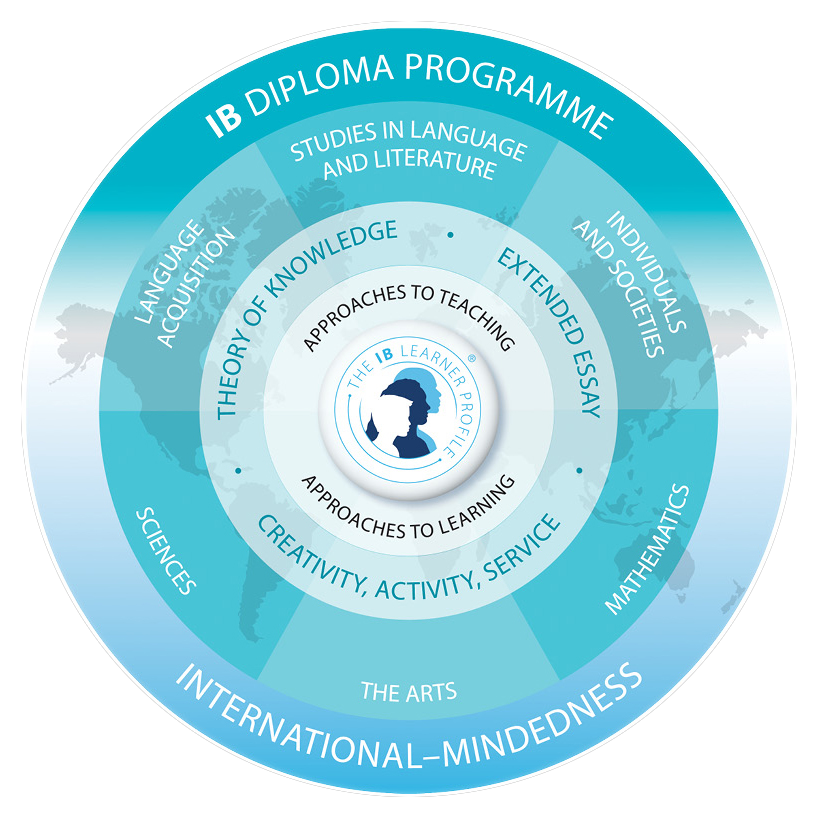The Islamic College of Melbourne is proud to announce that it is a candidate school for the Diploma Programme. This school is pursuing authorization as an IB World School. IB World Schools share a common philosophy- a commitment to high-quality, challenging, international education- that we believe is important for our students. The IB Diploma will offer students an international education that prepares students for an interconnected world. The College’s philosophy alongside the IB Diploma Programme is to provide a world class education aiming to develop global citizens who are inquirers principled, open-minded, caring, communicators and thinkers. The Diploma programme is recognised and welcomed by leading universities and colleges around the world.
What is the IB Diploma Programme?
The International Baccalaureate Diploma Programme (IB DP) was established in Geneva in 1968 to provide an international, and internationally recognised, university-entrance qualification for students studying outside of their home country. The IB’s goal is to provide students with the values and opportunities that will enable them to develop sound judgments, make wise choices, and respect others in the global community. The IB Programme equips students with the skills and attitudes necessary for success in higher education and employment; it has the strengths of a traditional liberal arts curriculum, but with three important additional features, shown at the center of the curriculum model (below). Today the IB DP has expanded so that more than half the students opting for it come from state or national systems rather than from international schools. As the IB DP has grown, so too has its reputation for excellence; the IB DP is now recognised in almost every country in the world as a one of the pre-eminent pre-university qualifications.
The IB Diploma Programme is a two-year (Grade 11 & 12, or ages 16-19) international curriculum that allows students to fulfil the requirements for university entrance of their national or state education systems. Internationally mobile students are able to transfer into the IB Diploma Programme from other IB World Schools, as well as from other school systems.
The IB Diploma Curriculum
Over the course of the two-year programme, students:
- study six subjects chosen from the six subject groups
- complete an extended essay (EE)
- follow a theory of knowledge course (TOK)
- participate in creativity, action, service (CAS)
Normally, three of the six subjects are studied at higher level (courses representing 240 teaching hours). The remaining three subjects are studied at standard level (courses representing 150 teaching hours).
Core Requirements
- Theory of Knowledge (TOK)
- Extended essay (EE)
- Creativity, Activity and Service (CAS)

IB Mission Statement
The International Baccalaureate aims to develop inquiring, knowledgeable and caring young people who help to create a better and more peaceful world through intercultural understanding and respect. To this end the organization works with schools, governments and international organizations to develop challenging programmes of international education and rigorous assessment.
These programmes encourage students across the world to become active, compassionate and lifelong learners who understand that other people, with their differences, can also be right.
IB DP Subjects
Students are required to select one subject for each of group 1-5 and a 6th subject from group 3 or 4. ICOM will offer the following IB subjects:
Group 1: Language A – Language and Literature
- English – Language and Literature HL/SL
Group 2: Language Acquisition
- Arabic B – HL/SL
- French Ab Initio – SL
Group 3: Individuals & Societies
- Business Management SL/HL
- Psychology SL/HL
IB Core
- Creativity, Activity & Service (CAS)
- Extended Essay (EE)
- Theory of Knowledge (TOK)
Group 4: Experimental Sciences
- Biology SL/HL
- Chemistry SL/HL
- Physics SL/HL
Group 5: Mathematics
- Applications and Interpretations SL
- Analysis and Approaches SL
Group 6:
- One subject from groups 3 or 4
